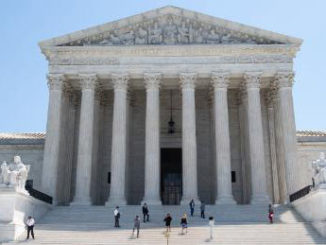
TOKYO (TIP): Japan‘s economic recovery is expected to survive the impact from scheduled increases in the sales tax, a Reuters poll showed, as the government prepares economic stimulus measures to soften the blow. Prime Minister Shinzo Abe is set on Oct. 1 to sign off on an increase in the 5 percent sales tax to 8 percent in April and then to 10 percent in October 2015 to pay for welfare costs. The world’s third-largest economy is forecast to grow 2.8 percent in the fiscal year to March 2014, a Reuters poll of 24 economists showed. The survey, conducted Sept. 12-19, was little changed from the August poll. Growth is expected to slow to 0.7 percent in the following fiscal year as the first increase in the sales tax will slow consumer spending. That forecast also was little changed from last month’s poll. In fiscal 2015, growth will then accelerate to 1.5 percent, higher than 1.1 growth forecast last month, as declines in consumption will be temporary.
“Growth in Q1 next year should be boosted by spending being brought forward ahead of the consumption tax hike, which should slow growth in the second quarter,” said Marcel Thieliant, economist at Capital Economics. Japan is considering $50 billion in economic stimulus to cushion the blow of the national sales-tax increase, which is meant to rein in the government’s massive debt, people involved in the decisions have told Reuters. The tax hike is the biggest effort in years by a Japanese government to contain a public debt that, at more than twice the nation’s annual economic output, is the biggest in the world. The economy grew an annualised 3.8 percent in the second quarter, driven in large part by strong consumer spending, boosting the case for Abe to go ahead with the sales tax hike. Critics of the plan have called for a delay or watering down of the tax increase on the view Japan’s economy is still too weak to take the pain. Many politicians blame the last sales-tax hike, in 1997, for plunging the country into recession. The poll also showed that Japan’s core consumer prices were expected to rise 0.8 percent for the fiscal year starting April 2014 and 0.8 percent for fiscal 2015, excluding the effect of the expected sales tax hike. In comparison, the Bank of Japan’s latest forecasts are for a 1.3 percent rise and a 1.9 percent increase, respectively. The BOJ overhauled monetary policy in April in a bold move to pull Japan out of 15 years of mild deflation.




Be the first to comment